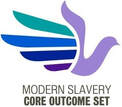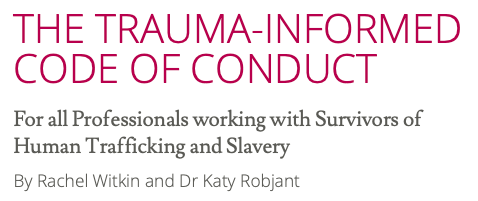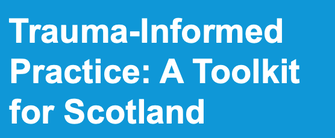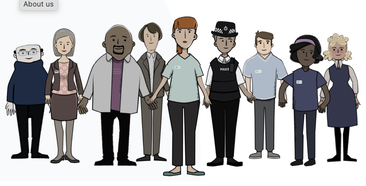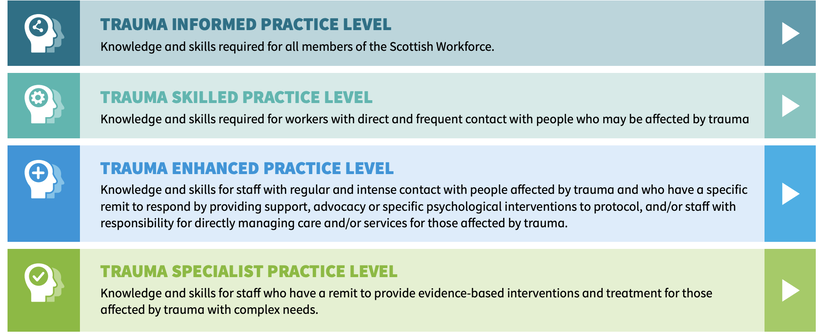|
Wendy explains the need for trauma-informed services and how they provide needed support and a distinct contrast from traffickers.
|
x
If all services for survivors were trauma-informed, there would be many more trafficking prosecutions and convictions. To be understood, and to speak out about the terrible things that have happened to us, we need to have faith in the police and authorities, but also in the entire system of professional services that should be there to help and protect us. |
x
Survivors have suffered unimaginable things in modern slavery: all sense of their power is crushed, their hopes are crushed, there is no trust left – they feel they cannot have trust in anyone. So they need to have support from people that they are comfortable speaking to. Often, they will feel shy nervous, or uncomfortable with professionals, especially those who are not trauma-informed. When you approach survivors in a trauma-informed way, you are helping them regain those powers back, build their trust back, the ability to do things for themselves, and able to be involved in whatever plans are being made for them. It is really important that they can choose the gender of interpreters also. When trauma-informed services work with survivors they get better outcomes from their situation, better understanding of how to deal with challenges. They also ensure survivors feel educated and empowered, rather than being told what to do. |
MSCOS study descriptor: This outcome describes the need for staff who are trained and experienced in working with survivors who have traumatic histories. Survivors need to be able to trust all the professionals who work with them including police, immigration authorities, support workers, social workers, and shelter staff. This means developing trusting relationships, working to realistic expectations, supporting survivors to understand all the information they are being given, communicating to survivors in their language, and being honest. At a very basic level, this outcome is about staff treating survivors as human beings, listening to their stories and needs, and being a positive force in people's lives. All services need to be as inclusive and sensitively delivered as possible.
Relevant Practice Models and Frameworks
for compassionate, trauma-informed services
for compassionate, trauma-informed services
|
Key trauma-informed framework
SAMHSA’s Concept of Trauma and Guidance for a Trauma-Informed Approach responds to and recognizes the impact of trauma on many sectors in behavioral health and beyond. The paper introduces the concept of trauma and offers a framework for how organizations, systems, and service sectors can become trauma-informed.
x
SAMHSA’s Concept of Trauma and Guidance for a Trauma-Informed Approach responds to and recognizes the impact of trauma on many sectors in behavioral health and beyond. The paper introduces the concept of trauma and offers a framework for how organizations, systems, and service sectors can become trauma-informed. The paper also expands on the following topics: Definition of trauma (the three “Es”):
By cross-walking the key principles with trauma-specific content, this paper aims to provide a viable and unified framework that can be used to support the work of consumers, communities, and stakeholders. The engagement process with the public was a critical piece in creating such a framework for the many sectors who serve survivors and their families. |
Task-based trauma-informed guidance The Trauma-Informed Code of Conduct by Rachel Witkin and Dr Katy Robjant draws upon practical, experiential and therapeutic methods of working with survivors of trafficking to provide professionals from any field or discipline with simple techniques that they can absorb into their own communications and conduct with survivors.
x
The Trauma-Informed Code of Conduct by Rachel Witkin and Dr Katy Robjant draws upon practical, experiential and therapeutic methods of working with survivors of trafficking to provide professionals from any field or discipline with simple techniques that they can absorb into their own communications and conduct with survivors. The TICC is designed to enable professionals in all fields of discipline to:
The trauma-informed methods in the TiCC can be applied to all forms of communication regardless of length and level of formality, and therefore benefit law enforcement and national authorities as well as NGOs and civil society organisations. They are helpful for professionals working at any basic level in communications with possible or known survivors of trafficking, as well as those with more detailed remits, who need to build a longer term relationship of trust, who may need to obtain disclosure of traumatic trafficking histories, and support survivors who have backgrounds of ritualized violence. The TiCC is intended for use only within the strict parameters of each professional’s allocated role and remit. It is equally applicable to people who have been domestically trafficked (within the borders of one country) as to those who have crossed international borders. Although tailored, trauma-informed environments are ideal for working with survivors, the significant value of trauma-informed working lies in professionals’ ability to exercise it solely within their conduct and communications in any situation or setting. TiCC methods do not conflict with any other recommended practice, for example, cultural congruence, child specialist work, use of interpreters and cultural mediators. Rather, the space, time and dignity afforded to survivors through the use of trauma-informed working methods permits these practices to operate to a fuller effect. For child rights-centred communications see The Lundy Model. |
Helpful Resources
National Trauma-Informed Training and Practice
|
NHS Scotland's Trauma-informed Practice Toolkit
This trauma-informed practice toolkit has been developed as part of the National Trauma Training Programme, to support all sectors of the workforce, in planning and developing trauma informed services. |
The Scottish Government has funded a National Trauma Training Strategy for the broad Scottish workforce. The Transforming Psychological Trauma framework is a 4-tiered training model designed to increase understanding of trauma and its impact. It does not require that everyone in the workforce should be a trauma expert, but that all workers, in the context of their own role and work remit, have a unique and essential trauma-informed role to play in responding to people who are affected by trauma.
x
The framework applies for working with all forms of trauma from any experience. It applies for workers (in conjunction with their appropriate generic and/or professional guidance), managers and supervisors, organisations (to ensure staff have the necessary knowledge and skills), education and training providers and people affected by trauma, their families and supporters.
A [trauma informed] workforce ...can minimise the barriers to receiving care, support and interventions that those affected by trauma can experience when memories of trauma are triggered by aspects of the service or interactions with staff ... In our meetings with those affected by trauma, almost universally they told us about the importance of their relationships with workers in accessing the support, interventions or life chances they needed, whether this be in justice, in physical health, or in education for example. They told us that above all else, the development of a trusting relationship with a worker had the greatest impact upon their capacity to seek and receive care, support or interventions. Trauma informed services change the question from 'What is wrong with you?' to 'What has happened to you?”
A [trauma informed] workforce ...can minimise the barriers to receiving care, support and interventions that those affected by trauma can experience when memories of trauma are triggered by aspects of the service or interactions with staff ... In our meetings with those affected by trauma, almost universally they told us about the importance of their relationships with workers in accessing the support, interventions or life chances they needed, whether this be in justice, in physical health, or in education for example. They told us that above all else, the development of a trusting relationship with a worker had the greatest impact upon their capacity to seek and receive care, support or interventions. Trauma informed services change the question from 'What is wrong with you?' to 'What has happened to you?”
British Red Cross (n.d.), First Aid.
Chakaoian K., Santos J., Sethi R. (2021), Trauma-informed Practice in the Field: Recommendation for Human Trafficking Service Providers.
Chambers R, Greenbaum J, Cox J, Galvan T (2022), Trauma Informed Care: Trafficking Out-Comes (TIC TOC Study), J Prim Care Community Health, 13.
Foot, K. (2020), Toward Trauma-Informed Professional Practices: What Legal Advocates and Journalists Can Learn from Each Other and Survivors of Human Trafficking, 36 Ga. St. U. L. Rev. 1129.
Hopper E. K. (2017), Trauma-Informed Psychological Assessment of Human Trafficking Survivors, Women & Therapy, 40(1-2).
Hopper, E. K. (2004), Under identification of Human Trafficking Victims in the United States, Journal of Social Work Research and Evaluation, 5(2).
Jain J., Bennett M., Bailey M. D., Liaou D., et al. (2022), Creating a Collaborative Trauma-Informed Interdisciplinary Citywide Victim Services Model Focused on Health Care for Survivors of Human Trafficking, Public Health Rep., 137(1_suppl).
Ladd S. K., Neufeld Weaver L. (2018), Moving forward: Collaborative accompaniment of human trafficking survivors by using trauma-informed practices, Journal of Human Trafficking, 4(3).
Lockyer S. (2020), Beyond Inclusion: Survivor-Leader Voice in Anti-Human Trafficking Organizations, Journal of Human Trafficking, 8(2).
National Human Trafficking Training and Technical Assistance Center (n.d.), Trauma-Informed Approach.
Office for Victims of Crime Training and Technical Assistance Center (n.d.), Using a Trauma-Informed Approach.
Scott J. T., Ingram A. M., Nemer S. L., Crowley D. M. (2019), Evidence-Based Human Trafficking Policy: Opportunities to Invest in Trauma-Informed Strategies, American Journal of Community Psychology, 64(3-4).
United Nations Investigative Team to Promote Accountability for Crimes Committed by Da’esh (UNITAD) and Stanford University (2021), Trauma-Informed Investigations Field Guide.
United States Department of State (2021), Unifying Trauma-informed practices and voices of survivor Leadership.
The Lundy Model for communications with children, see ODIHR (2022), National Referral Mechanisms - Joining Efforts to Protect the Rights of Trafficked Persons: A Practical Handbook – Second Edition, pp. 79-82.
Pastoral support and supervision for all professionals who work with survivors of trafficking, see ODIHR (2022), National Referral Mechanisms - Joining Efforts to Protect the Rights of Trafficked Persons: A Practical Handbook – Second Edition, pp. 82-84.
Chakaoian K., Santos J., Sethi R. (2021), Trauma-informed Practice in the Field: Recommendation for Human Trafficking Service Providers.
Chambers R, Greenbaum J, Cox J, Galvan T (2022), Trauma Informed Care: Trafficking Out-Comes (TIC TOC Study), J Prim Care Community Health, 13.
Foot, K. (2020), Toward Trauma-Informed Professional Practices: What Legal Advocates and Journalists Can Learn from Each Other and Survivors of Human Trafficking, 36 Ga. St. U. L. Rev. 1129.
Hopper E. K. (2017), Trauma-Informed Psychological Assessment of Human Trafficking Survivors, Women & Therapy, 40(1-2).
Hopper, E. K. (2004), Under identification of Human Trafficking Victims in the United States, Journal of Social Work Research and Evaluation, 5(2).
Jain J., Bennett M., Bailey M. D., Liaou D., et al. (2022), Creating a Collaborative Trauma-Informed Interdisciplinary Citywide Victim Services Model Focused on Health Care for Survivors of Human Trafficking, Public Health Rep., 137(1_suppl).
Ladd S. K., Neufeld Weaver L. (2018), Moving forward: Collaborative accompaniment of human trafficking survivors by using trauma-informed practices, Journal of Human Trafficking, 4(3).
Lockyer S. (2020), Beyond Inclusion: Survivor-Leader Voice in Anti-Human Trafficking Organizations, Journal of Human Trafficking, 8(2).
National Human Trafficking Training and Technical Assistance Center (n.d.), Trauma-Informed Approach.
Office for Victims of Crime Training and Technical Assistance Center (n.d.), Using a Trauma-Informed Approach.
Scott J. T., Ingram A. M., Nemer S. L., Crowley D. M. (2019), Evidence-Based Human Trafficking Policy: Opportunities to Invest in Trauma-Informed Strategies, American Journal of Community Psychology, 64(3-4).
United Nations Investigative Team to Promote Accountability for Crimes Committed by Da’esh (UNITAD) and Stanford University (2021), Trauma-Informed Investigations Field Guide.
United States Department of State (2021), Unifying Trauma-informed practices and voices of survivor Leadership.
The Lundy Model for communications with children, see ODIHR (2022), National Referral Mechanisms - Joining Efforts to Protect the Rights of Trafficked Persons: A Practical Handbook – Second Edition, pp. 79-82.
Pastoral support and supervision for all professionals who work with survivors of trafficking, see ODIHR (2022), National Referral Mechanisms - Joining Efforts to Protect the Rights of Trafficked Persons: A Practical Handbook – Second Edition, pp. 82-84.
